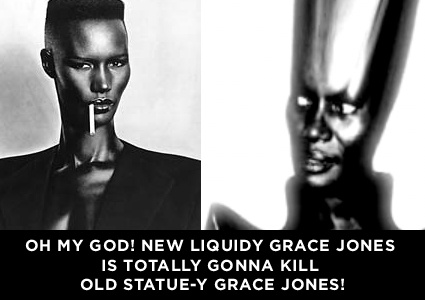
Over at
in media res, the
theme week on Steven Shaviro’s Post-Cinematic Affect has gotten underway with an intriguing
post by Elena del Rio from the University of Alberta entitled “Cinema’s Exhaustion and the Vitality of Affect,” which I highly recommend reading/viewing. I wanted to post a short response there, but for some reason I am unable to log in to do so. So I’m posting my response here for the time being, but will post again at in media res when possible.
(Note that the following draws on ideas that I develop at much greater length in Postnaturalism: Frankenstein, Film, and the Anthropotechnical Interface, which I am currently revising for publication, and attempts to set them in relation to del Rio’s response to Shaviro’s notion of post-cinematic affect.)
What Deleuze calls the “vital power that cannot be confined within species [or] environment” (quoted by Elena del Rio in her post at in media res) might profitably be thought in terms of “metabolism”—a process that is neither in my subjective control nor even confined to my body (as object) but which articulates organism and environment together from the perspective of a pre-individuated agency. Metabolism is affect without feeling or emotion—affect as the transformative power of “passion” that, as Brian Massumi reminds us, Spinoza identifies as that unknown power of embodiment that is neither wholly active nor wholly passive. Metabolic processes are the zero degree of transformative agency, at once intimately familiar and terrifyingly alien, conjoining inside/outside, me/not-me, life/death, old/novel, as the power of transitionality—marking not only biological processes but also global changes that encompass life and its environment. Mark Hansen usefully defines “medium” as “environment for life”; accordingly, metabolism is as much a process of media transformation as it is a process of bodily change. The shift from a cinematic to a post-cinematic environment is, as del Rio describes it, a metabolic process through and through: “Like an expired body that blends with the dirt to form new molecules and living organisms, the body of cinema continues to blend with other image/sound technologies in processes of composition/decomposition that breed images with new speeds and new distributions of intensities.” To the extent that metabolism is, as I claimed, inherently affective (“passionate,” in a Spinozan vein), del Rio is right that post-cinematic affect has to be thought apart from feeling, certainly apart from subjective emotion. Del Rio’s alternative approach, which (in accordance with Deleuze’s mode of questioning while thinking beyond the time-image) asks about the image, taking it as the starting point of inquiry, is helpful. The challenge, though, becomes one of grasping the image itself not as an objective entity or process but as a metabolic agency, one which is caught up in and defines the larger process of transformation that (dis)articulates subjects and objects, spectators and images, life and its environment in the transition to the post-cinematic. This metabolic image, I suggest, is the very image of change, and it speaks to a perspective that is the perspective of metabolism itself—an affect that is distributed across bodies and environments as the medium of transitionality. As del Rio rightly suggests, exhaustion—mental, physical, systemic—is not at odds with affect; rethinking affect as metabolism (or vice versa) might help explain why: exhaustion, from an ecological perspective, is itself an important, enabling moment in the processes of metabolic becoming.


